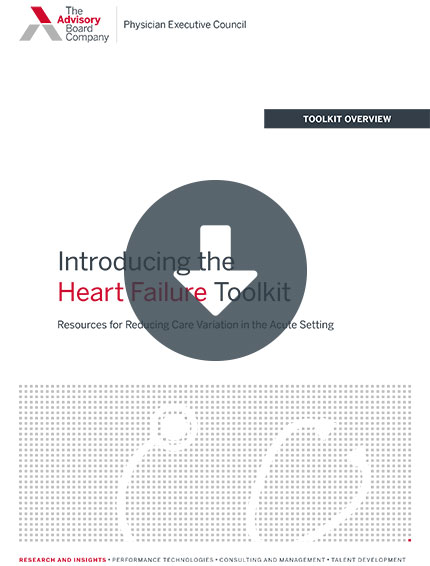Auto logout in seconds.
Continue LogoutWhile "[l]ow-sodium diets are widely recommended for people who have a variety of ailments," including heart failure, there's actually "little proof" that low-sodium diets are helpful for heart failure patients, Aaron Carroll writes for the New York Times' "The Upshot."
Cheat sheets: How to understand scientific studies
What we know (and don't) about low-sodium diets
About 5.7 million people in the United States experience heart failure, and "most major medical organizations" advise these patients to follow a low-salt diet, Carroll writes. However, while one might "assume that they do so from a strong base of evidence," Carroll writes, that's not the case.
In fact, according to Carroll, "there is a shockingly small amount of evidence" to support the benefits of a low-salt diet for heart failure patients.
A group of researchers recently performed a systematic review to evaluate the evidence on the effectiveness of reduced sodium intake for treating heart failure. The researchers found only nine randomized control studies strong enough to be include in their review—and none of those studies was considered at low risk for bias or involved more than 100 participants, Carroll writes.
The researchers found no data showing that low-sodium diets reduced heart disease or mortality, affected a patient's hospital admissions, or reduced a patient's length-of-stay. And the results of the four outpatient studies were ambiguous: Half showed that low-sodium diets lead to improvement in heart function, and half did not.
"This is a minuscule amount of data on which to base strong recommendations," Carroll states. "We need better research." He cites Clyde Yancy, professor of cardiology at Northwestern School of Medicine, who in an editorial accompanying the study wrote that just 0.3% of all studies into the connection between sodium intake and heart function were of high enough quality to be included in the review.
There is, Carroll acknowledges, some broader evidence supporting a link between very high salt intake and high blood pressure, as well as evidence that patients who follow certain diets, such as the Dietary Approaches to Stop Hypertension diet, experience better heart health outcomes—although Carroll notes that such diets "affect more than just salt."
But the "larger point," Carroll writes, "is that if [an intervention] lack[s] strong evidence, we should admit it and make our advice more equivalent and appropriately less confident.
Is there any downside to a low-salt diet?
Additional research into low-sodium diets is underway, Carroll writes, but in the meantime, is there any harm in advising them for heart failure patients anyway? Yes, there is, Carroll contends: "There's a risk of emphasizing salt avoidance at the expense of other—potentially more useful—diet measures."
For instance, research suggests that consuming more potassium or fiber may be beneficial for heart health. While "we also lack a strong evidence base from randomized controlled trials where potassium and fiber are concerned … recommendations for those diet changes don't seem nearly as vocal or as strident as the push for salt reductions," Carroll notes.
How should medical experts move forward?
While a few randomized control trials are underway to better evaluate the effectiveness of reduced sodium intake, Yancy in his an editorial said that "retreat[ing] from an unbridled and potentially harmful insistence on rigorous sodium restriction in those with symptomatic heart failure" is an important first step.
Carroll concludes, "Unfortunately, this exhortation could apply to more than just this one instance. Whether it's our consumption of fat, or meat, or sugar, or even salt, it seems the assurance with which we speak should match the quality of evidence behind our recommendations" (Carroll, New York Times, "Upshot," 12/17).
Learn more about why study design matters
Been awhile since your last statistics class? It can be difficult to judge the quality of studies, the significance of data, or the importance of new findings when you don't know the basics.
Download our cheat sheets to get a quick, one-page refresher on some of the foundational components of evidence-based medicine.
Don't miss out on the latest Advisory Board insights
Create your free account to access 1 resource, including the latest research and webinars.
Want access without creating an account?
You have 1 free members-only resource remaining this month.
1 free members-only resources remaining
1 free members-only resources remaining
You've reached your limit of free insights
Become a member to access all of Advisory Board's resources, events, and experts
Never miss out on the latest innovative health care content tailored to you.
Benefits include:
You've reached your limit of free insights
Become a member to access all of Advisory Board's resources, events, and experts
Never miss out on the latest innovative health care content tailored to you.
Benefits include:
This content is available through your Curated Research partnership with Advisory Board. Click on ‘view this resource’ to read the full piece
Email ask@advisory.com to learn more
Click on ‘Become a Member’ to learn about the benefits of a Full-Access partnership with Advisory Board
Never miss out on the latest innovative health care content tailored to you.
Benefits Include:
This is for members only. Learn more.
Click on ‘Become a Member’ to learn about the benefits of a Full-Access partnership with Advisory Board
Never miss out on the latest innovative health care content tailored to you.


